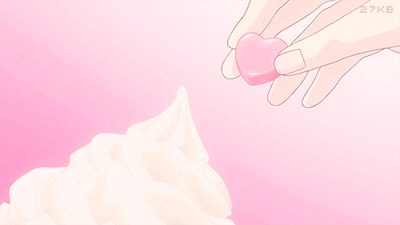#psycho-cybernetics
Explore tagged Tumblr posts
Text

Psycho-Cybernetics
29 notes
·
View notes
Photo

Stanley Street, Manchester.
#got the builders in#grafterss#psycho-cybernetics#guy#evil genius#in training#sunny#sunshi#Manchester
15 notes
·
View notes
Text
Rainbow Life: The Las Vegas Arts District 18b
Click here to learn why I wrote, "Maybe it's just because I'm surrounded by rainbows, but I have a sneaking suspicion that I'm sitting on a pot of gold." #LasVegas #art #writerslife
“If they offer you a bad deal at lease renewal,” I told myself, “something better is coming that will make it worth the effort to move.” My head knew the statement to be true, but my body was exhausted just thinking about the work that relocating would require. I was about to put the finishing touches on a few exciting new things for my business and didn’t want to put my projects on hold, but my…

View On WordPress
4 notes
·
View notes
Video
youtube
ONEWE’s GIUK has released a logo motion announcing his upcoming solo debut mini-album “Psycho Cybernetics: Turn Over” which is scheduled to be released on April 12th.
15 notes
·
View notes
Text
If you want to get more clients and make more money, then you need to expand your self-image before you can have them. Trying to achieve without expanding your self-image doesn’t lead to lasting positive change.

#self image#self improvement#self change#change yourself#change your thoughts#spiritualpath#psycho cybernetics#digital art#ai art#art#mirror
13 notes
·
View notes
Video
youtube
Maxwell Maltz - How To Turn Crisis Into Creative Opportunity
The difference between those who prosper and those who struggle is not some inherent quality that one has and the other hasn’t. It is largely a matter of how they learned to react to crisis situations. A “crisis” is a situation which can either make you or break you. If you react properly to the situation, a “crisis” can give you strength, power, wisdom you do not ordinarily possess.
If you react improperly, a crisis can rob you of the skill, control, and ability that you ordinarily have to call upon. The so-called “money player” in sports, in business, or in social activities—the person who comes through in the clutch—who performs better under the stimulus of challenge, is invariably the person who has learned either consciously or unconsciously to react well to crisis situations.
2 notes
·
View notes
Text
Here are 10 lessons from Psycho-Cybernetics by Maxwell Maltz
Here are 10 lessons from Psycho-Cybernetics by Maxwell Maltz 1. Your mind is a powerful tool. You can use it to achieve your goals, overcome challenges, and live a happy and fulfilling life. 2. Your self-image is important. The way you see yourself affects your thoughts, feelings, and actions. If you have a negative self-image, it will be difficult to achieve your goals. 3. You can change your…
View On WordPress
0 notes
Text
how to cultivate growth⋆.ೃ࿔*:・🍡

GET UNCOMFORTABLE ;
u cannot grow where ur already comfortable so in order to grow u must get out of ur comfort zone, even if that means getting uncomfortable. like growing a muscle, you must put stress on it first for it to grow. in order to grow u must take action towards ur goals despite any fears that u may have.


MAKE NEW THOUGHTS ;
to embrace the next version of urself and to grow u should make new thoughts that serve you. as you know ur thoughts create ur reality so why keep around thoughts that dont serve you or even worse, self sabotaging thoughts? start saying ur affirmations and applying the law as a way to grow ur confidence in urself and creating ✨
HOT TIP ; start listening to affirmations tapes, i rly recommend high frequency guru on youtube for aff tapes but u can always make ur own too…💬🎀
FROM 0 -> 10 ;
i talked about this in one of my previous posts but i wanna talk about breaking down goals again because making one broad goal, at least in my opinion, can be daunting and ultimately ineffective. breaking it down is where its at.
break down goals into sub goals with tasks within them
make certain tasks a priority
at least 1% closer to ur goal every single day
dont focus on going from 0 -> 100. instead break things up into steps so that u dont intimidate yourself and burn urself out quickly. kind of like a rubber band. if u stretch the rubber band as far as it'll go it'll snap back into place, which leads me to my next point.


THE SNAP BACK EFFECT ;
the snap back effect can be summed up by the example that i used above. the snap back effect was coined by dr. maxwell maltz, author of “psycho-cybernetics,” to describe the rampant self-sabotage of personal improvement goals.
SO HOW DO WE BEAT THE SNAP BACK EFFECT ;
we beat the snap back effect through consistency and through sticking to ur plan. dont jump from 0 -> 100 because then ur just setting urself up for failure. jump from 0 -> 10 and so on so forth.
remember that life is all about growing and pursuing ur goals so make sure that ur helping urself grow and evolve.
#advice#law of assumption#honeytonedhottie⭐️#it girl#becoming that girl#self concept#self care#self love#that girl#it girl energy#dream girl tips#dream girl#dream life#self improvement#self development#self healing#hyper femininity#hyper feminine#goal setting#goal driven#girly#girl blogging#girl blog#girl power#self improvement blog#self improvement tips#growth#metamorphosis
587 notes
·
View notes
Note
Do you have any book recommendations for confidence, self esteem or femininity?
Yes! Here are some great books—
The Mountain Is You – Brianna Wiest
Psycho-Cybernetics – Maxwell Maltz
Atomic Habits – James Clear
The High 5 Habit – Mel Robbins
The Art of Seduction – Robert Greene
The 48 Laws of Power – Robert Greene
Women Who Run With the Wolves – Clarissa Pinkola Estés
Awaken Your Inner Goddess – Skye Alexander
92 notes
·
View notes
Text
10 books you should read to get smarter
Black Swan by Nassim Taleb
80/20 Principle by Richard Koch
Laws of Human Nature by Robert Greene
The Alchemist by Paul Coehlo
Thinking Fast and Slow by Daniel Kanheman
Psycho-Cybernetics by Maxwell Maltz
Outliers by Malcolm Gladwell
Sapiens by Yuval Noah Harari
The Power of Habit by Charles Duhigg
The Man Who Mistook His Wife for a Hat by Oliver Sacks
#self improvement#self love#growth#mindfulness#self development#education#self care#self help#books and reading#booklover#bookworm#book review#biography#books#books & libraries#booklr#bookblr#book quotes#self control#smart#self discipline#self worth#mind control#mindset#e
701 notes
·
View notes
Text
You may never have met a professional hypnotist. You may never have been formally hypnotized. But if you have accepted an idea - from yourself, your teachers, your parents, friends, advertisements, from any other source - and further, if you are firmly convinced that idea is true, it has the same power over you as the hypnotist's words have over the hypnotized subject.
Maxwell Maltz, Psycho-Cybernetics
57 notes
·
View notes
Note
I just want you to know, Mr. Circular Building, that somewhere in some alternate universe, there is an anime where every little piece of microfiction you’ve written on both Tumblr and Twitter about mech jockeys/pilots is the lore.
This means that mech jockeys from this hypothetical series are:
owned by corporations
treated as less than human.
Usually have to deal with the horrors of war.
are connected to a mech to pilot via extremely invasive, almost body horror cybernetic implants
Drugs. End of sentence.
While inside said mech, they are blinded to the outside and have to rely on their handler, whom only sees the jockey as a war dog.
If they die there’s a chance that they basically become a ghost that has to help out the fresh meat.
and if they get to retire, they are constantly reminded of their past, from the lingering effects of IV cocktails, to hating silence, and being reminded of the only machine they will ever love.
And don’t forget the weird psycho-sexual shit either. If you pull out the implants mentioned earlier, they might moan.
Arguably, they’ll be as traumatized as Guts. Did I miss any?
this sounds tight as hell and i hope alternate universe rounderhouse is the director of this anime. he's probably having a ball with it
55 notes
·
View notes
Text
Book Review: Psycho-Cybernetics by Maxwell Maltz, MD, FICS
Check out my first brief book review! I've mentioned Psycho-Cybernetics a few times already within the essays on my blog and decided I wanted to say a bit more about the impact it had on me.
Note: This post contains affiliate links. I earn from qualifying purchases on Amazon. I’ve decided to start posting brief book reviews here featuring the titles that have had the biggest impact on me and I can think of no better place to start than Psycho-Cybernetics by Maxwell Maltz, MD, FICS. To date I’ve listened to the book three times, read the paperback once, and wrote a series of poems to…

View On WordPress
0 notes
Note
Has Cat ever been Flustered or Embarrassed 🤨

It’s impossible for him to get flustered now a days
Only Ross and his wife have seen his more vulnerable side, quick backstory on Ross, he’s a human, cybernetically enhanced (like most people) who lost his job and stooped to the lowlife just to keep his family fed, though Ross dialled it down a bit once he made bank, but nothing is enough for Cat, so they slowly grew apart as time went by. Cat still loves him and his family (though he will never admit it)
Ross’s family is the only reason Cat isn’t a complete unfeeling psycho without a consciousness, he’s close though
76 notes
·
View notes
Text
Okay okay okay so I know I tentatively put out the idea of MMA fighter!Dabi/Touya, BUT -- what about Cyberpunk!Dabi??
Think about it: the LOV is still a terrorist organization, but with cybernetic enhancements - most of them are damn near on the verge of going Cyberpsycho as it is with how much chrome they're packing.
Their fire fights with the NCPD/Militech and Arasaka are legendary and brutal; no one leaves unscathed, and even the rest of the gangs that terrorize Night City give them a wide birth - least they get pulled into a turf war with them.
Poor little you is just trying to get home after a particularly long day at your job (your hours are shit and the pay is arguably worse), and you find yourself running for cover as a gang fight breaks out between the LOV and Maelstrom.
One thing leads to another, and suddenly you find yourself looking up at a white haired man - more chrome then flesh - learing down at you with a grin so terrifying, you almost think he's gone full psycho, had hd not made any move to snap your neck.
Giving him a quick scan, you can see that he has a cybernetic arm that spits out blue hell fire, and mechanically enhanced eyes so insanely blue it's a new shade to you completely, amoung a plethora of other enhancements that make you question how he isn't a fully fledged Cyberpsycho.
You know who he is, everybody in Night City knows of the white haired pyromaniac with specialty fire resistant implants, and of how dangerous he is.
It's Dabi from the LOV. You're in trouble now.
#dabi#touya todoroki#dabi x reader#dabi x you#touya x reader#sighs dramatically#guess i'm adding this one to my wip's too#i have so many other things to work on but this idea was too fun not to share!#i still wanna do a little story for mma fighter!dabi#but i love cyberpunk and i wanted to get this idea off my chest too!#dunno if it'll ever become a full story but i definitely want to come back and revisit this idea soon#rose rambles#cyberpunk!au
57 notes
·
View notes
